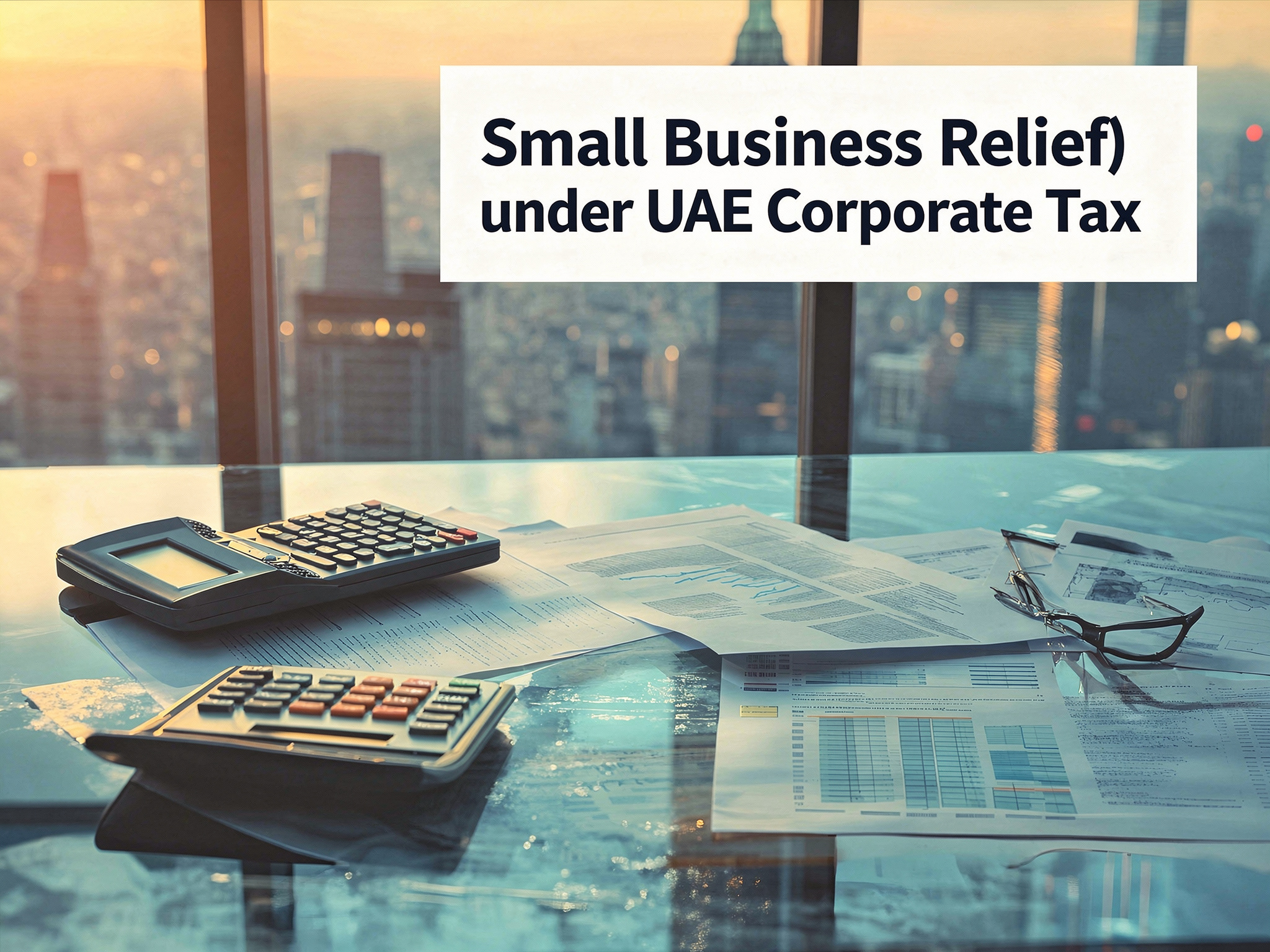With Corporate Tax now a key pillar of the UAE’s fiscal framework, businesses must carefully navigate their Dubai Corporate Tax (CT) obligations to ensure compliance and minimize exposure. As certain entities fall outside the scope of UAE Corporate Tax, the identification of exemption criteria is crucial for today’s economic environment.
Join us as we break down who is exempt from UAE Corporate Tax and why these exemptions matter for UAE businesses.
Understanding Corporate Tax Exemptions in the UAE
A UAE corporate tax exemption is a legally recognized privilege that allows qualifying entities to either minimize or eliminate their tax liabilities on qualifying income, thereby stimulating economic growth through investment, innovation, and job creation.
Curious as to who is exempt from corporate tax in the UAE? These are main exemption types and let’s dive into each.
UAE Corporate Tax Exemption: Eligible Businesses and Key Criteria
Under the UAE corporate tax law, certain businesses qualify for Dubai corporate tax exemption based on their activities and compliance with regulatory requirements. The following entities are typically eligible for exemption from corporate tax in the UAE:
- Government Entities
- Government Controlled Entities
- Extractive Businesses
- Non-Extractive Natural Resource Businesses
- Qualifying Public Benefit Entities
- Qualifying Investment Funds
- Public and private pension or social security funds
- Juridical persons incorporated in the UAE that are wholly owned and controlled by certain Exempt Persons
Entities benefiting from exemptions must still comply with UAE corporate tax laws and meet the Ministry of Finance’s criteria to prevent any UAE corporate tax obligations.
Jaxa, qualified corporate tax experts, provides a guide outlining essential corporate tax policies and exemption criteria, assisting businesses in meeting their filing responsibilities. For reliable and efficient corporate tax solutions, trust Jaxa — a certified UAE Federal Tax Authority (FTA) registered tax agent dedicated to guiding businesses through tax compliance.
Let us look at some of the Exemptions in more detail.
UAE Corporate Tax Exemption for Government Businesses Under Article 5
- Government entities are Exempt from UAE Corporate Tax liability and the application of the Decree Law.
- The Exemption does not apply to government entities conducting business under a license issued by a Licensing Authority.
- BusinessActivities conducted under a license are classified as separate businesses, requiring distinct financial documentation from the government entity’s other operations.
- For every tax period, businesses licensed by the authority must perform independent taxable income calculations.
- All financial dealings between licensed and non-licensed government operations are considered Related Party transactions and must comply with Article 34 of the law.
- Under the Decree-Law, the Government Entity may consolidate its licensed Business Activities into one Taxable Person by applying to the Authority and meeting the Minister’s specified conditions.
Government Controlled Entities – Exemption Conditions (Article 6)
Entities specified by Cabinet Decision are exempt from UAE Corporate Tax, unless they engage in licensed business activities.
- Licensed business activities of Government-Controlled Entities impact their eligibility for corporate tax exemption in the UAE and must be accounted for separately.
- To maintain corporate tax exemption in the UAE, the entity must keep separate financial records for each licensed business activity.
- Each licensed business must calculate taxable income separately to ensure UAE corporate tax compliance.
- Under UAE corporate tax rules, all non-mandatory transactions and related activities with affiliated entities are considered Related Party transactions.
UAE Corporate Tax Exemption for Extractive Businesses
Entities involved in extractive activities may be eligible for a corporate tax exemption in the UAE under specific conditions:
- Eligibility Conditions:
- Must hold a license or right granted by the local government.
- Must be subject to an Emirate-level tax on extractive income.
- Must submit official notification to the Ministry of Finance.
- Dual Activity:
If income is earned from both extractive and other businesses:
- Extractive income must be taxed under Emirate laws.
- Other income is subject to the UAE Corporate Tax Decree-Law unless it qualifies as a Non-Extractive Natural Resource Business.
- A person is not treated as earning from a separate business if the supportive business generates less than 5% of total revenue in a Tax Period.
- The corporate tax exemption in the UAE applies only when the local government levies a tax on income, profit, royalty, or revenue from extractive activities.
- Financial Reporting & Compliance:
- Separate accounting is required for extractive and non-extractive activities.
- Shared expenses must be allocated proportionally.
- Taxable income for non-extractive businesses must be computed independently under the Decree-Law.
- Non-Qualifying Parties:
- Contractors, subcontractors, or third-party service providers are not exempt from UAE corporate tax under this category.
Corporate Tax Exemption in UAE for Non-Extractive Natural Resource Businesses
- To be exempt from UAE corporate tax, a person must have local authorization, notify the Ministry, and follow the Emirate tax rules.
- Income from non-extractive natural resource activities is taxed separately under Emirate regulations.
- Supportive businesses generating less than 5% of total revenue are not treated as separate taxable entities.
- Financial records must be maintained distinctly, with shared expenses allocated accordingly.
- Exemption applies only when the local government imposes taxes on these activities.
- Contractors or subcontractors not meeting the exemption criteria are excluded.
Qualifying Public Benefit Entity – Corporate Tax Exemption in UAE
A Qualifying Public Benefit Entity in the UAE can be exempt from UAE corporate tax under the below conditions:-
- Established Exclusively for religious, charitable, scientific, artistic, cultural, athletic, educational, healthcare, environmental, humanitarian, animal protection or other similar purposes.
- A professional entity, chamber of commerce, or a similar entity operated exclusively for the promotion of social welfare or public benefit will also be covered under this.
- Conducts only non-business activities aligned with its core objectives
- No income or assets should be for the personal benefit of any shareholder, member, trustee, founder or settlor unless they are a qualifying Public Benefit, Government, or Government Controlled Entity under UAE corporate tax regulations.
- The Cabinet may prescribe further UAE corporate tax exemption conditions based on the Minister’s recommendation.
- The exemption for a Qualifying Public Benefit Entity becomes effective from the tax period listed in the Cabinet decision or a date specified by the Minister.
- To ensure ongoing UAE corporate tax compliance, the Authority may request supporting documents within a set timeframe from the exempted entity.
Reasons for UAE Corporate Tax Exemptions
- Prevent taxing the same income twice, easing financial pressure.
- Promote Public Welfare, such as charitable and social benefit organizations.
- Keeps the tax system equitable and focused.
Supports growth in priority sectors such as education and the environment.
What Makes Jaxa the Preferred Choice for UAE Corporate Tax?
Jaxa Chartered Accountants, a UAE FTA registered tax agent and trusted audit and accounting firm in the UAE and Dubai. With 18 years of experience, our certified corporate tax consultants in the UAE help clients handle corporate tax compliance without stress. Our tax experts provide tailored accounting, auditing, corporate tax, and VAT services in the UAE and Dubai.
Navigate UAE Corporate Tax with confidence- expert advice to maximize your savings and ensure compliance.
Book your CONSULTATION today!





